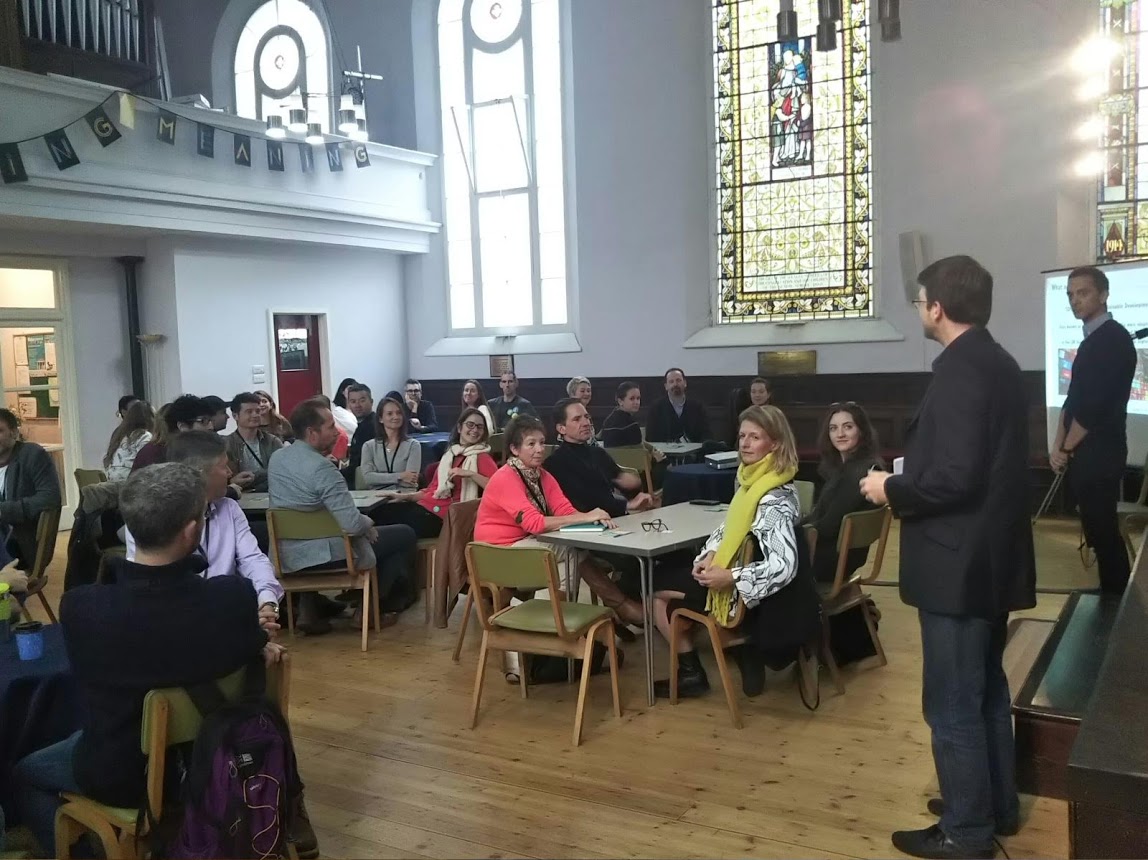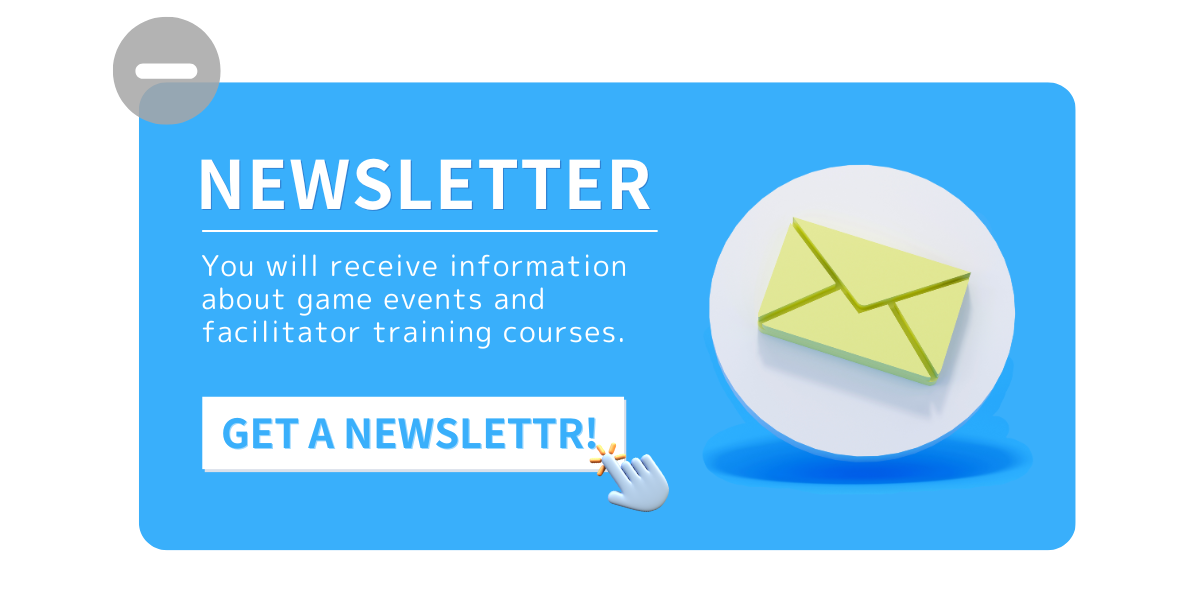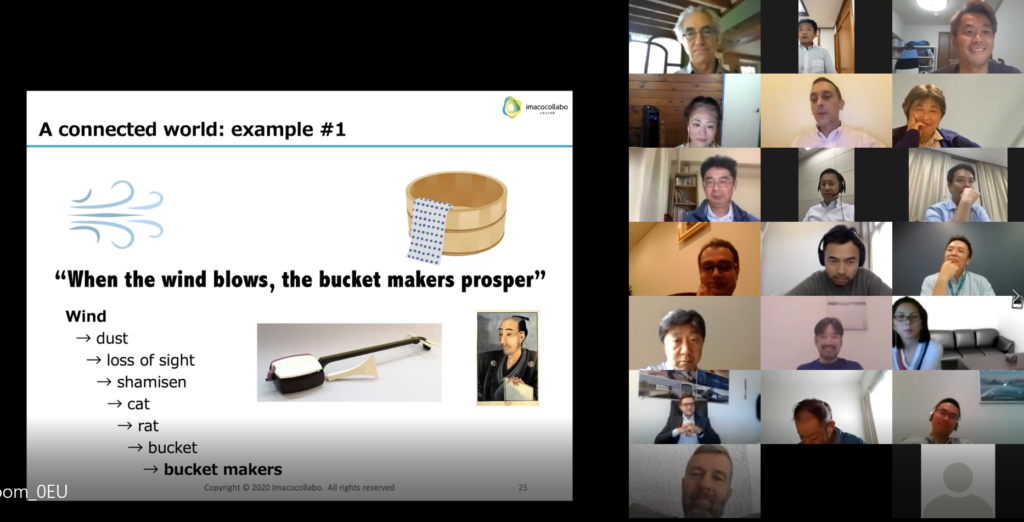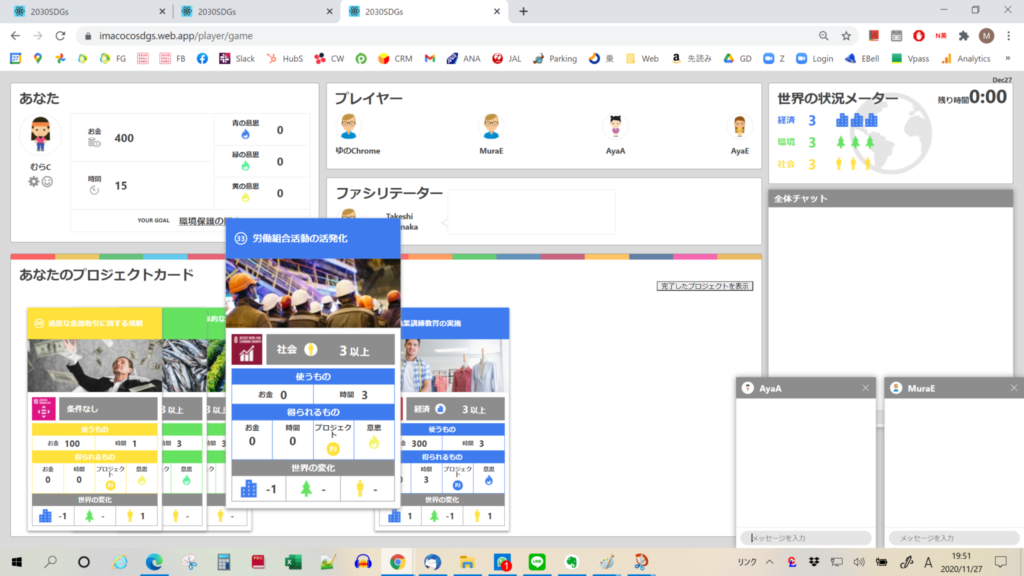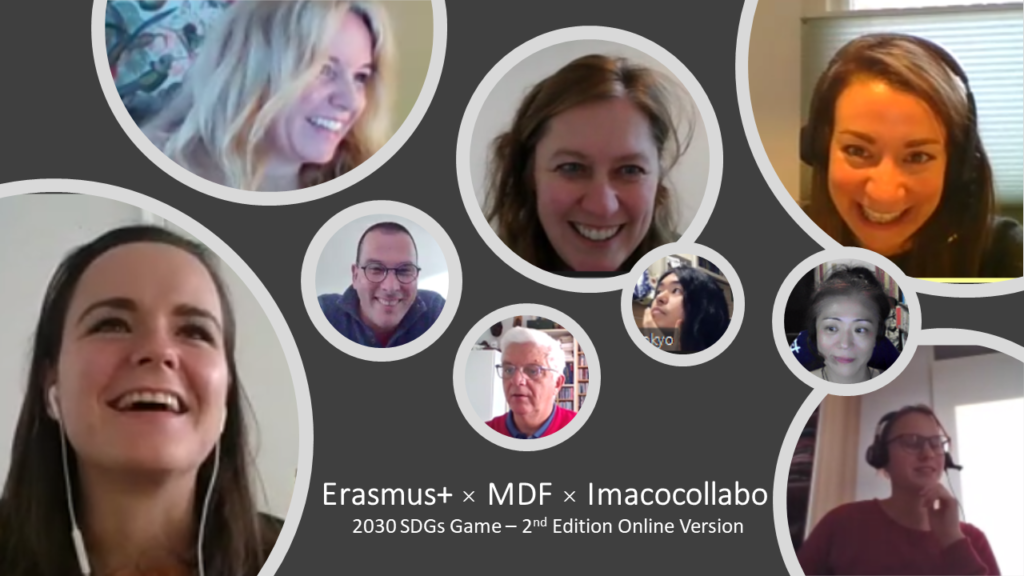Imacocollabo had delivered a 2030 SDGs Game Facilitator training program in English for the first time in early November 2018 in Tokyo. There were 5 participants from abroad including UK, France, Turkey, Singapore and Hong Kong. And one of the participants shared his experience here.)
Please introduce yourself briefl y?
y?
My name is Nathaniel Whitestone.
I support the global transition from toxic ways of being powerful to healthy ways of being powerful, using play and the practice of integrity. I grew up passionate about games. My mother grew up in East Africa and the USA; my father grew up in the US. I’ve always felt that I am a global citizen. When I was twenty-one, I dedicated my life to addressing the big challenges of the world. I co-founded the Ecovillage Network of the Americas when I was twenty-three. Since then I have worked in ethical investing, life coaching, facilitation, training, business consultancy, game design, agile software development, cohousing development, and international development. Though I was born in the US (Vermont), I have lived in England since 2005, with my British wife and two sons.
How did you get to know 2030SDGs game for the first time?
I first heard about the 2030 SDGs Game through my friend Skip Swanson, who was a coaching apprentice of Drs. Gay and Kathlyn Hendricks at the same time I was. Skip has been a translator in Japan for the last 30 years. He and I have stayed in touch over the fifteen years since we finished our apprenticeships, and when he knew he would be taking the 2030 SDGs Game global, he reached out to me. I leapt at the opportunity.
What brought you to join the facilitator training?
My business partner and I have a business called A Fairer Society, in which we help our members build a fairer society one community at a time. We help people come together to build cohousing or launch other co-owned ethical businesses. We have a vision for the long term development of our company which involves creating local communities of practice devoted to serving local needs, united by the SDGs.
When we saw how well people in England responded to the game in May 2018, we committed to getting me trained as a facilitator and started planning our November launch. The 2030 SDGs Game would be the gateway experience which brings people into our communities of practice!
Five months later, I arrived in Tokyo for my facilitator training. I had one day to get reacquainted with Japan, and then we began.
What were the most difficult /fun experiences during the training program? Any impressive moment? And what was the most biggest take away or learnings for you from the facilitator training program? If any?
Jet-lagged, I struggled with the first day. The morning was very rich for me, and I had no difficulty staying awake through the deep coaching conversations that launched our training. By midafternoon, however, I found that I was only able to remain awake by standing up through the lecture! I’ve often found this issue in workshops when I am not jet-lagged, and this day was no different.
( Training Day 1 )
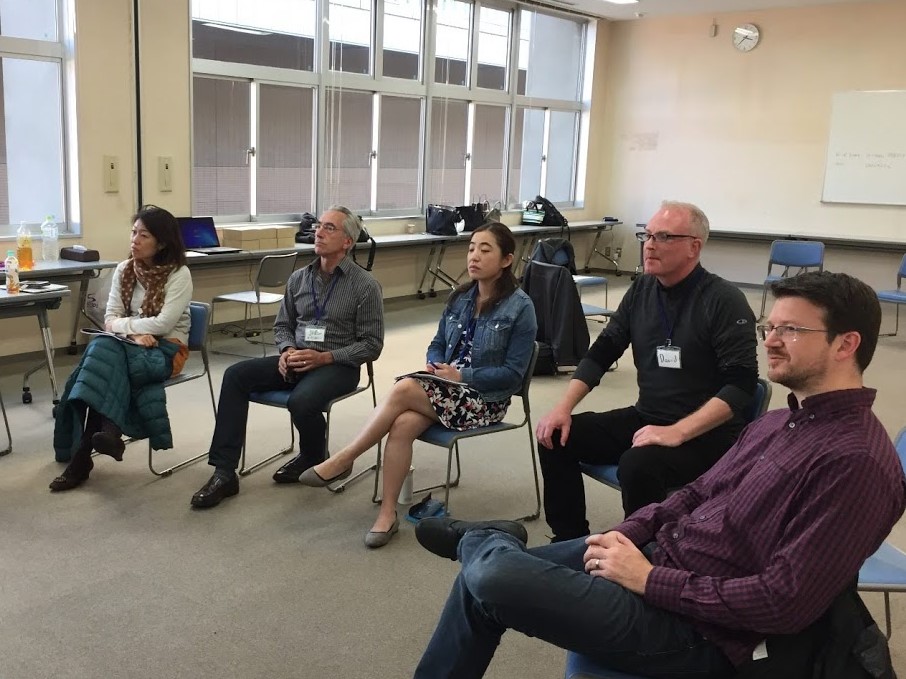
The second day was focused almost entirely on the details of running the game. I found this easier, perhaps because I had more sleep. At the end of the second day, we were strongly encouraged to practice going through our game scripts as many times as we could before the next morning: the third day would start with an evaluation! With a fellow facilitator that evening I read through the entire script, alternating lines and using silly voices. I read through several more times, each time imagining myself at the front of the room with a full audience of participants.
On the third day, our assessments went well. Just as promised, they were friendly and provided plenty of useful tips for improvement, however well we delivered the game material.
Although my assessment provided me several nervous moments, the biggest challenge of the trip came for me during the genuine invitation to participate in designing the future of the facilitation program and the global roll-out of the Game.
The Game for me had become a huge part of my business plans, and it matched the passions which had taken me through my life. When I saw my opportunity to contribute, I tried to share everything at once – at least in outline! When our facilitator asked me to stop sharing, out of a concern for time, I totally lost perspective. The specter of a childhood on the edge of the group, my contribution rejected, filled my vision. Would this community where I so wanted to bring my passion be unable to receive me?
I sat quietly on the edge of the group as others spoke. I skipped the next exercise as others contributed. I wrestled my feelings of sadness and anger and fear, all triggered by this moment of touching something I profoundly cared about, and seeing the ghost of – the potential for – failure and rejection.
After the exercise the facilitator asked me if I’d like to step aside and complete with him. As a professional facilitator and coach myself, of course I knew that my quietness was a huge red flag to him, and I had acknowledged out loud that something happened for me during the process. It was time to face into this — I was so reluctant to address it but I had to go!
( Celebration Dinner after Day 3 )
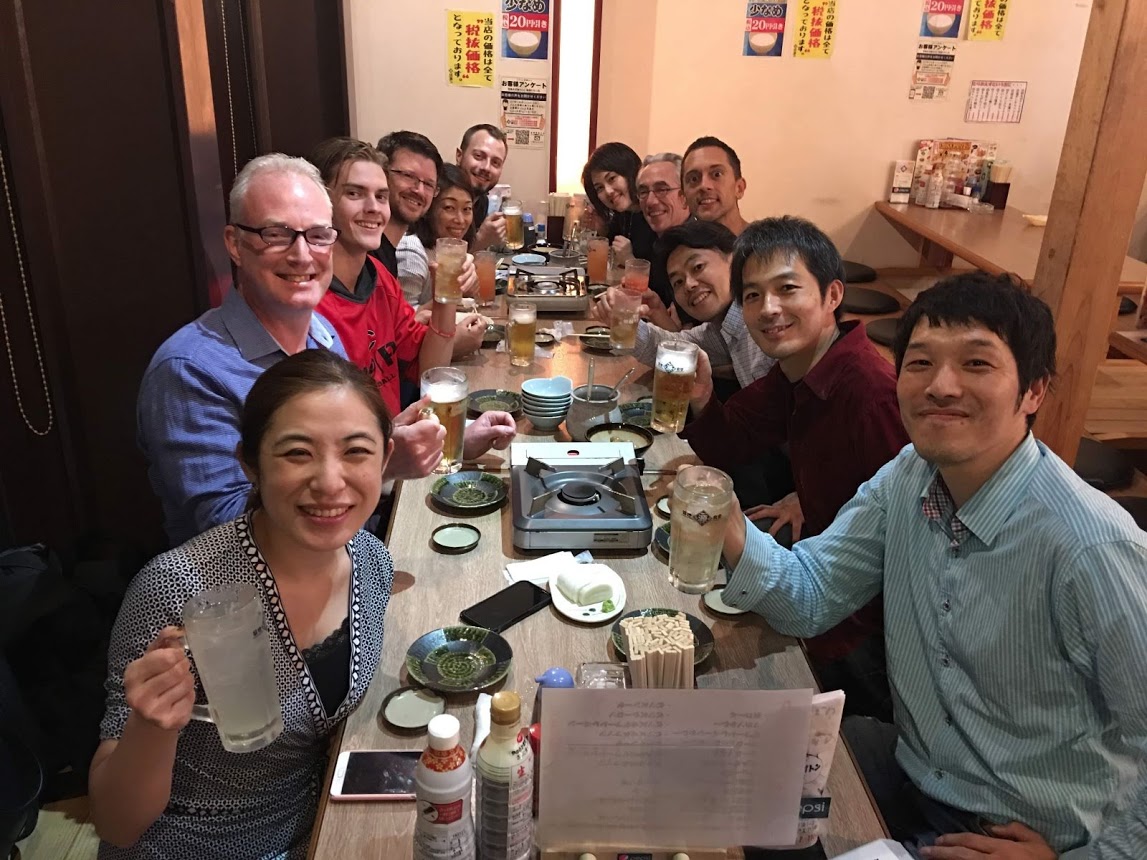
In the corridor we spoke. He asked me what had happened, and invited me to find a way to create what I most wanted.
In that conversation, I could see that my own despondency about being unable to contribute in that group was a small version of the fear that I cannot contribute and make a difference in the world. Would my contribution be unwelcome? Be rejected? And in the moment when I am most afraid that I might be pushed away, am I willing to come back with all of my passion and tenderness to create a better world?
I was aware again of my surroundings. An elderly Japanese man watched this bearded foreigner wipe his eyes and go back into the conference room, head high.
When we sat in the final circle, I shared my experience. I also shared my gratitude. In coming to Japan I had co-created a global community through which we could all take the huge risk of daring to build a world worthy of our greatest potential and our most tender hearts.
When was your actual experience as a certified facilitator and how was it? Any impressive moment?
Since I returned to England in mid-November, I have run the 2030 SDGs Game five times, three times with the support of the visiting global training team. I have more than twenty requests for more games. All the expenses of the facilitator training have been repaid, and the Game does seem likely to be a powerfully transformative gateway that can draw new people to collaborating with the support of our business (A Fairer Society).
( The author’s first 2030 SDGs game in Oxford, November 2018 )
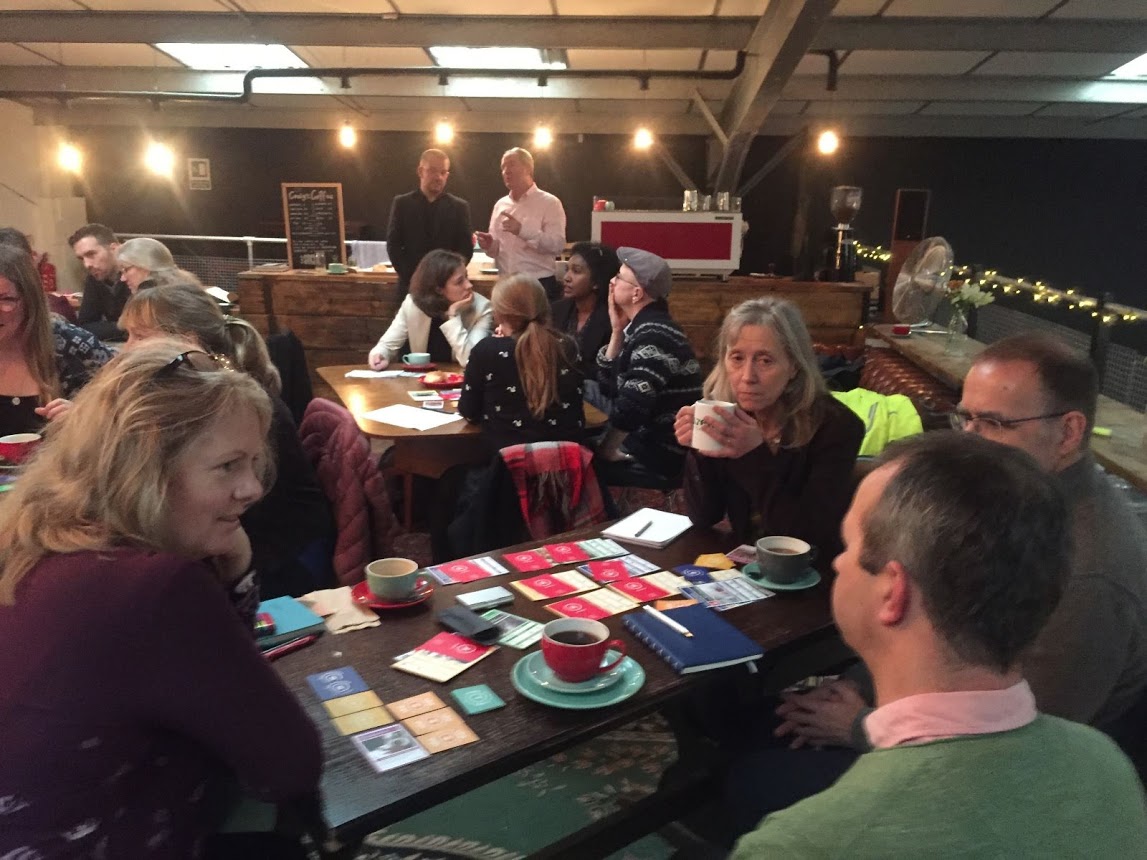
Future plans?
In the next six months, we will be delivering the Game in schools and communities, and we are negotiating with corporate clients as well. My co-founder Peter plans to get certified as a facilitator. We are excited about the kinds of collaborative community that we expect to see emerging from our work. People get so excited about making a change in the world after they play with us! And of course, I have stayed in touch with my global facilitation community. The conversation about how we will create a global business system to support 2030 SDGs Game facilitators everywhere continues to evolve. Despite my inevitable moments of fear and doubt, my contribution – even my leadership! – continues to be welcomed.
Message to those who are considering to join the training program
Do you use group processes to make the world a better place? Do you want to?
If so, I warmly recommend training as a facilitator. If you choose to take this training, I would give you the same suggestion that I give in every 2030 SDGs Game: pay attention to your experience. Watch what happens. Perhaps it will show you something you need to know about your work or your life.
( The author delivering introducton to the SDGs at Meaning Conference in November 2018 )
